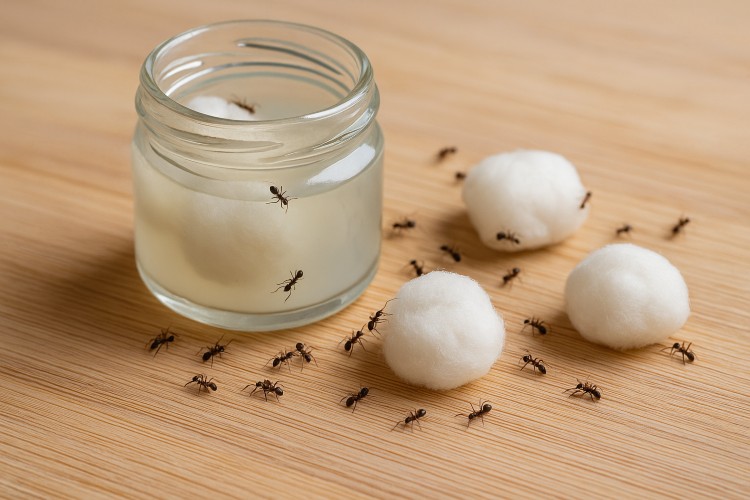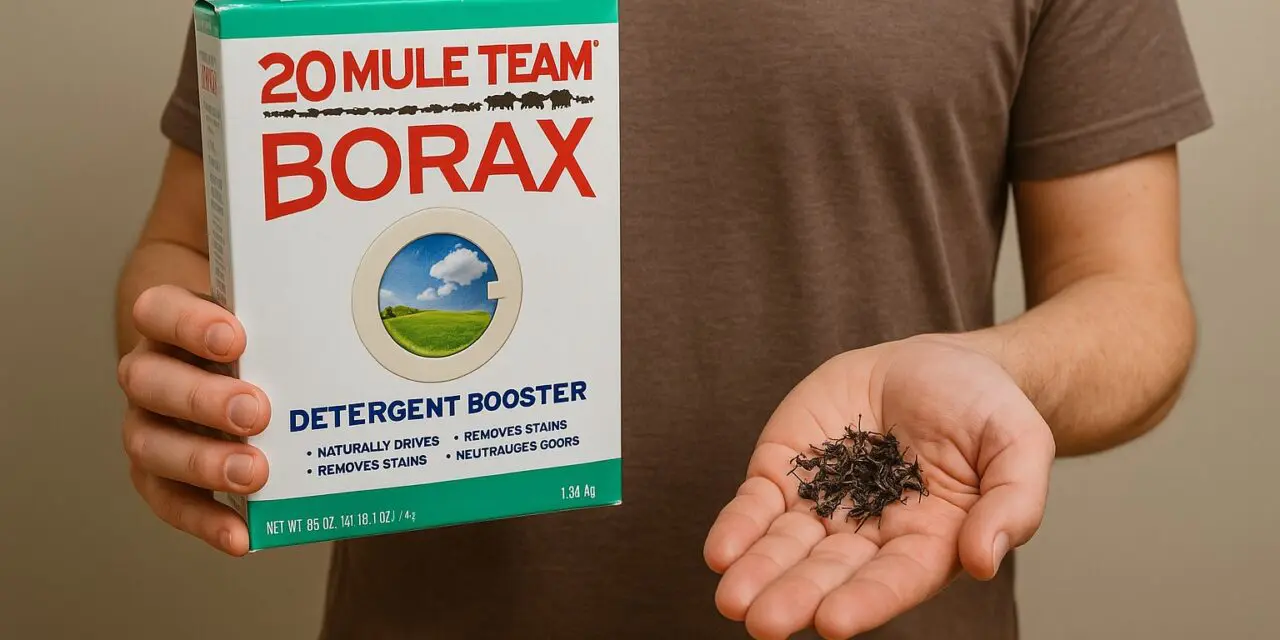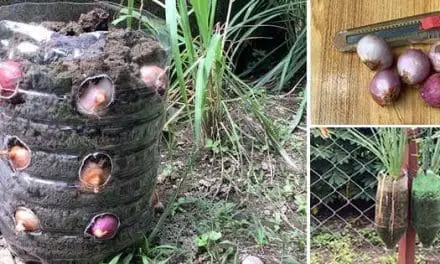Ants may be small, but when they invade your space, they arrive with the strength of an army. Whether it’s tiny sugar ants marching across your kitchen counter, carpenter ants chewing into your wood, or fire ants threatening your outdoor peace, these little invaders can quickly become a big problem.
Thankfully, there’s a solution that doesn’t involve harsh chemicals or expensive exterminators — and it’s probably already in your pantry. If you’ve been wondering “does borax kill ants?” the answer is a confident yes. Let’s explore how to kill ants with borax, why it works, and how to make your own borax ant killer recipe using natural, self-sufficient methods.
Why Borax Works Against Ants
Borax, or sodium borate, is a naturally occurring mineral that’s long been used in household cleaning and pest control. To ants, it’s lethal. When ants eat borax bait, it disrupts their digestive system and eventually eliminates the colony — but it works slowly, which is exactly what makes it so effective.
You see, when ants find food, they don’t eat it all themselves. They carry it back to the nest and share it with the queen, larvae, and other ants. That’s why borax ant killer is more than just a surface solution — it gets to the source by targeting the entire colony.
And yes, borax does kill carpenter ants, though it may take a bit more patience and strategic placement. These ants tend to stay hidden deep in wood structures, so getting your homemade bait into their pathways is key. Using a combination of ant traps and bait stations with a borax mixture can increase your chances of success.
To make the bait more attractive, you can simply mix borax with powdered sugar or parts sugar to create a sweet lure. Some people also use honey or peanut butter to create a thick paste that entices ants to consume the bait. Remember, worker ants consume the bait and carry it back to the colony, ensuring that all the ants eventually die.
For tiny ants invading your kitchen counters or other areas, placing the bait in small containers or under a plastic lid can help keep the bait contained and safe from pets and children, as borax is non toxic to humans in small amounts but can cause skin irritation if handled improperly.
If you want a more natural approach, integrating soapy water sprays can help repel ants and erase pheromone trails, leading to fewer ants entering your home. Additionally, sprinkling baking soda mixed with sugar can act as an alternative DIY ant control method that’s safer for pets.
While borax is effective against sugar ants and carpenter ants, it also works on fire ants and other pests that may invade your home or yard. However, it’s important to monitor the bait stations regularly and replenish the borax solution as needed to maintain effectiveness and prevent more ants from appearing.
Using commercial traps alongside homemade borax bait can provide a comprehensive approach to ant control, especially when dealing with persistent infestations. Combining these methods with good sanitation practices — like wiping down counter tops and sealing entry points — will help keep your home ant-free.
In summary, borax is a versatile and effective ant killer when used correctly. By creating appealing ant bait with sugar or honey, placing it strategically in ant traps or under plastic lids, and combining it with natural deterrents like soapy water and baking soda, you can tackle various ant problems, reduce dead ants around your home, and enjoy a pest-free environment.
How to Make Ant Killer with Borax
 Here’s a simple borax ant killer recipe you can make at home with just a few ingredients:
Here’s a simple borax ant killer recipe you can make at home with just a few ingredients:
You’ll need:
- 1/2 cup of warm water
- 1 1/2 tablespoons of borax
- 1/2 cup of sugar
- Cotton balls or paper towels
- Small jars, lids, or shallow dishes
Instructions:
- Mix the borax and sugar into the warm water until dissolved.
- Soak cotton balls in the solution.
- Place the soaked cotton near ant trails, windowsills, or other entry points.
The sugar attracts the ants. The borax kills them — slowly, allowing them to take it back to the colony. In a few days, you’ll notice a drop in activity. In a week or two, the problem often resolves completely.
You can also create a dry bait by mixing borax with powdered sugar and placing it in jar lids. Just be sure to keep all baits away from pets and children.
Will Borax Kill Fire Ants Too?
Yes — borax will kill fire ants, but it takes a bit more strategy. Fire ants live in colonies deep underground, so surface baiting isn’t always effective on its own. For them, consider mixing borax with peanut butter or honey to create a thick paste that acts as an irresistible borax bait. Placing this bait near their mounds or along their ant trails increases the chances that worker ants consume it and carry it back to the nest.
Because the active ingredient in borax disrupts the ant’s digestive system, it doesn’t kill ants immediately. This delay is beneficial, allowing the worker ants to share the poisoned bait with the entire colony, including the queen and larvae. Over time, this method eventually kills all the ants, reducing the ant problem at its root.
Persistence is key when dealing with fire ants. You may need to replenish the borax mixture multiple times to ensure all the ants are exposed. Using bait stations or small containers to hold the bait can help keep the borax solution contained and safe from pets and children, as borax can cause skin irritation if handled improperly.
In addition to borax, combining it with other natural remedies like peppermint oil or essential oils can help repel ants and discourage new ants from invading your space. For a more comprehensive DIY ant control approach, you might also consider sprinkling diatomaceous earth around entry points and along pheromone trails to mechanically deter ants without chemicals.
By integrating these methods, you can effectively get rid of ants, including stubborn fire ants, while minimizing risks to your family and pets. This natural, homemade approach uses common ingredients to create an effective ant killer borax solution that targets the colony and helps maintain a pest-free home.
What About Carpenter Ants?
Carpenter ants are larger and more elusive than sugar ants, often nesting inside wood structures, which can make them tougher to eliminate. Fortunately, borax is effective against carpenter ants as well. The key is to create a bait that they find irresistible and place it where they travel.
Mix borax with sweet substances like honey or sugar to form a thick paste that carpenter ants will eagerly consume. Worker ants will carry this borax bait back to the colony, sharing it with the queen and larvae. Because borax disrupts the ant’s digestive system slowly, it allows time for the poison to spread throughout the colony before the ants die.
For best results, place the bait stations near known carpenter ant trails, entry points, or suspected nesting areas. Be patient, as it may take several days to weeks to see a significant reduction in carpenter ant activity. Regularly replenish the bait to ensure that all ants in the colony are exposed.
Using borax bait in combination with good sanitation practices and sealing wood cracks can help prevent future carpenter ant infestations, protecting your home from potential damage.
An Ounce of Prevention Is Worth a Pound of Borax
While homemade ant killer with borax is effective, the best solution is avoiding infestations altogether. Ants are opportunists. They’re drawn in by crumbs, moisture, and tiny cracks in your home’s foundation. Simple habits like cleaning up spills, sealing entry points, and storing food properly can make a world of difference.
This kind of mindset — proactive, practical, and rooted in nature — is exactly the approach that’s kept traditional communities like the Amish thriving without dependence on modern chemicals or services.
That’s why I always recommend keeping a copy of The Amish Ways in your home.
📖 It’s more than just a book — it’s a guide to a quieter, more self-reliant life. From natural remedies to old-fashioned home care methods, it gives you the kind of wisdom that generations have relied on to stay healthy, prepared, and in control of their surroundings.
If you believe in solving problems with your own two hands — not calling an exterminator or buying the latest spray — this book is for you.
Other DIY Ant Control Options
If you’re looking to complement or avoid using borax, there are several other effective DIY ant control methods you can try at home. These natural and non-toxic options can help reduce ant populations and repel ants without the risks associated with chemical pesticides.
Vinegar and Essential Oils
A mixture of vinegar and essential oils like peppermint oil can serve as a natural ant repellent. The strong scent disrupts ants’ pheromone trails, making it harder for them to navigate and communicate. Simply mix equal parts of water and vinegar in a spray bottle, add a few drops of peppermint or tea tree oil, and spray around entry points, kitchen counters, and ant trails.
Soapy Water Spray
Soapy water is an inexpensive and effective ant deterrent. It works by breaking down the ants’ exoskeletons and washing away their scent trails. Mix a few drops of dish soap with water in a spray bottle and apply it directly to ants or their trails. This method kills ants on contact and discourages others from following the same path.
Diatomaceous Earth
Food-grade diatomaceous earth is a natural powder that damages the exoskeletons of ants and other insects, causing them to dehydrate and die. Sprinkle it lightly around windowsills, doorways, and baseboards. It’s safe for pets and humans when used correctly but avoid inhaling the dust.
Baking Soda and Powdered Sugar
Mixing baking soda with powdered sugar creates an effective ant bait. The sugar attracts the ants, while the baking soda disrupts their digestive system once ingested. Place the mixture in small containers near ant trails, but keep it out of reach of pets and children.
Homemade Peanut Butter Bait
For ants attracted to protein, a mixture of peanut butter and borax or baking soda can be used as bait. The peanut butter entices the ants, and the borax or baking soda works as the lethal agent. Apply the bait in small amounts near ant activity zones, ensuring it’s inaccessible to pets.
By combining these DIY methods with good sanitation practices, sealing entry points, and regular monitoring, you can create a comprehensive ant control strategy that minimizes chemical use and keeps your home pest-free.
Final Thoughts
Whether you’re dealing with kitchen invaders, hidden wood destroyers, or aggressive outdoor colonies, borax is a time-tested, natural solution that really works. It’s simple, affordable, and doesn’t require a lab coat to use.
With a bit of knowledge, a pinch of patience, and the right prevention tactics, you can protect your home — naturally.
Because true self-sufficiency means more than living off-grid. It means knowing how to handle what comes your way, using the tools nature already provides.
How to Take Care of Your Livestock When They Are Sick (Video)
Automatic Chicken Feeder That Needs No Electricity: How Do You Make It?














